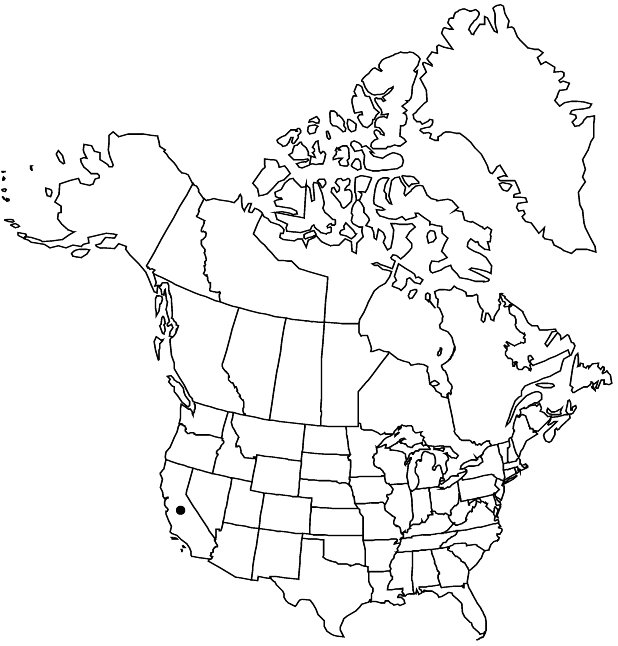Difference between revisions of "Arctostaphylos montereyensis"
Leafl. W. Bot. 10: 87. 1964 ,.
FNA>Volume Importer |
FNA>Volume Importer |
(No difference)
| |
Revision as of 20:30, 24 September 2019
Shrubs, erect, 1–3 m; burl absent; twigs finely glandular-hairy. Leaves: petiole 4–6 mm; blade light green, reddish, or slightly glaucous, dull, orbiculate-ovate to orbiculate, 2–3 × 1.5–3 cm, base rounded, truncate, or slightly lobed, margins entire, plane, surfaces papillate, scabrous, finely glandular-hairy. Inflorescences panicles, 4–10-branched; immature inflorescence pendent, branches crowded, axis 1–2 cm, 1+ mm diam., densely glandular-hairy; bracts not appressed, (green), leaflike, lanceolate, 3–12 mm, apex acuminate, surfaces glandular-hairy. Pedicels 5–6 mm, finely glandular-hairy. Flowers: corolla white, urceolate; ovary glandular-hairy. Fruits depressed-globose, 8–12 mm diam., finely glandular-hairy, (viscid). Stones distinct or partially connate. 2n = 26.
Phenology: Flowering winter–early spring.
Habitat: Maritime chaparral
Elevation: 0-500 m
Discussion
Of conservation concern.
Arctostaphylos montereyensis is known from sandy soils, ranging from dunes to sandstone outcrops, in the southern Monterey Bay area, Monterey County. Plants found on Fort Ord with auriculate leaf bases and blue-green leaves may represent hybrids with A. pajaroensis.
Selected References
None.
